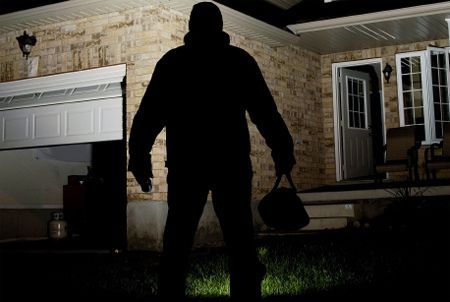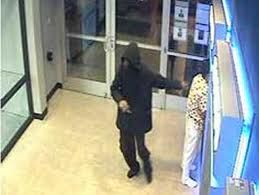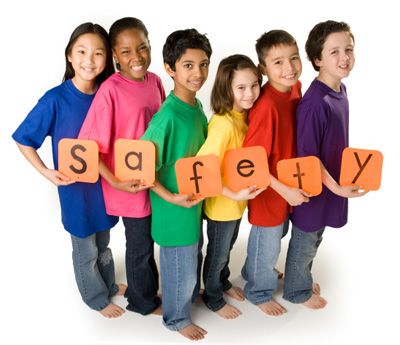Safety Tips

SHOPPING SAFETY TIPS:
· Carry only what you need, (driver’s license, credit card, minimize cash)
· Carry it in your pocket, if possible
· Record credit card numbers and leave at home in a safe place so you can quickly access them if your cards are stolen
· Use wristlet, or purse that can be slung across your shoulder (although opinions vary on this)
· NEVER leave your purse in your shopping cart. It takes only seconds for a thief to take it, or your wallet from inside
· Always keep car locked, even when you’re in it
· Be aware of your surroundings
· Avoid any distraction, such as talking on cell phone or listening to music as you’re going to and from your car
· Have your keys in hand, keys between your fingers
· Glance inside your vehicle before getting in making sure no one is in there hiding
· Exercise is good, but opt for a parking spot closer to the store building, preferably near a light, if you’ll be shopping after dark
· Never leave anything of value in plain site in your vehicle, even change. Hide your GPS
· If driving a van or SUV, you should keep a blanket inside anyway, throw it over your bags to conceal them
**********************************************************************************************************

Burglary Prevention Tips
· The average burglary happens in under 10 minutes, make your home difficult to break into.
· Keep all doors and windows locked.
· Keep garage doors closed.
· Make your home look occupied, lights on timers.
· Keep valuable items out of sight and well hidden.
· Keep an inventory of valuable items, record serial numbers, mark what you can
· Keep trees and shrubs around doors and windows trimmed.
· Use outside lights around potential points of entry.
· For an extended absence have grass cut, snow plowed, mail collected
· Report suspicious persons or vehicles, record license numbers.
· If you come home to find a burglary, do not enter, do not clean anything.
**********************************************************************************************************
Halloween Safety Tips
· Younger children should be accompanied by an adult when “Trick-or-Treating”, older children should go with friends.
· Parents should know the route taken by older children, and stay in neighborhoods known to them.
· Only approach homes that are well-lit, inside and out.
· Children should only enter homes known to them and with prior approval by parents.
· Children should wear reflective clothing and carry a flashlight or glow stick.
· Costumes should always be flame-resistant. Stay clear of luminaries or candle-lit jack-o-lanterns.
· Make sure any masks worn allow for clear visibility and breathing.
· Don’t eat any treats until they can be inspected for tampering, and don’t eat homemade treats from any strangers.
· Stay in well-lit areas, never take shortcuts or go into isolated areas.
· Where there are no sidewalks, walk close to curb facing oncoming traffic.
· Cross only at crosswalks, don’t walk between parked cars.
· Adults should never ask a child for help, they should ask other adults.
· NEVER approach a vehicle, even if it appears unoccupied.
· If someone tries to take a child (or anyone) scream, kick, run away, grab something large like a trash can, light pole, anything that makes it harder to be pushed into a vehicle.
· Report any suspicious people/activity to parents, police.
· Practice with children what to do when in danger.
**********************************************************************************************************

Student Safety Tips
General:
· Realize that there is a risk of crime, including violent crime, anywhere
· Know that using drugs or alcohol can increase your risk of becoming a victim (involved in 90% of student crimes)
· Be alert and aware of your surroundings
· Report any suspicious activity to police or campus security
· Trust your intuition
Residence:
· Make sure your dorm room and hall entrances are locked, especially when you’re not there or at night when you’re sleeping, (never prop a door open for someone)
· Don’t let a stranger in the building or allow someone to tailgate you inside
· Keep valuables secure and out of sight
· Keep shades drawn at night
Getting Around:
· Plan ahead for the safest transportation (shuttle, taxi, designated driver)
· Use the buddy system whenever you can (don’t go out alone)
· Share your schedules with parents, close friends
· Research crime rates and avoid areas where it is high
· Familiarize yourself with security offices, emergency phones
· Study campus maps, neighborhoods to plan safest route to classes or activities
· Never walk alone at night, or be the last to leave a building
· Be aware attackers can hide in your backseat or even under the car
· Have keys ready, can be used as defensive weapon
· Consider carrying mace or pepper spray
· Attach a personal alarm to key ring
· Program an “emergency contact” into your phone
· If a party gets out of hand LEAVE
**Never leave your drink unattended or with a stranger
**********************************************************************************************************
ONLINE SAFETY FOR CHILDREN
· Meeting/traveling is still happening, but more children being victimized online
· Sextortion – predator gains the trust of a child and, by threatening, induces them to send nude photos
· 15 year minimum mandatory federal sentence
· Juveniles producing an increasing amount of child pornography, believing they’re sharing with each other, or selling
· Predators using social media to target children (Kik, Instagram, Facebook, YouTube)
· Predators also using chat/instant messaging through online game sites
· What looks like an innocent exchange could be from a pedophile grooming trust
· Sites are monitored by internet service providers who are required to report to National Center for Missing and Exploited Children
· NCMEC takes Cyber tips/monitors images
· NCMEC sends reports to local law enforcement for investigation
· Local digital forensic investigators working with FBI
SAFETY TIPS FOR CHILDREN ONLINE:
· Don’t follow or accept friend requests from anyone you don’t know
· Block users you don’t know
· Never give out personal information
· Never post revealing photos
· Don’t respond to messages, or open emails or attachments from anyone you don’t know! This could potential open a pathway for the predator into your webcam
· Turn off computer when not in use
· Cover webcam when not in use
SAFETY TIPS FOR PARENTS:
· Think twice about giving your child a smart phone (or any unmonitored internet access)
· Educate yourself about games, apps and social media sites
· Keep computer in a family room instead of child’s bedroom
· Use parental controls/software
· Encourage your child to report anything that makes them uncomfortable
· Set boundaries (don’t expect your kids to know if they’ve done something harmful)
**********************************************************************************************************

ATM Safety Tips:
· 3 million victimized by ATM fraud each year
· Choose an ATM that’s public, well-lighted, free of shrubbery or dividers, not on a corner, if possible take someone with you
· Be aware of onlookers
· Visually inspect apparatus for signs of a skimmer or added camera
· Most banks now keep ATM face free of clutter, such as brochure holders, signage
· Memorize your PIN, shield your transaction
· Do not re-enter your PIN if the machine takes your card, contact bank
· Keep engine running and doors locked, leave room to pull away if car ahead of you
· Have your card in hand and prepare transaction ahead of time to minimize time at machine
· Be aware of anyone sitting in a parked car nearby
· Never count cash at the machine or in public
· Don’t leave receipt behind
· If followed, drive to police station or crowded, well-lit place
· Urban myth; entering PIN backwards when under duress alerts police (FTC mandated to do cost analysis, technology exists, but could cause real risk to victim if they fumble trying to remember the code backwards)
· If victimized at ATM, try to allow the bank camera to capture an image of the suspect
· If you’re confronted by an assailant, minimize your risk and COMPLY
· Closely monitor bank accounts
**********************************************************************************************************

“Catfish” scheme
· “Catfish”- used to describe someone who has created a fake social media profile to deceive someone
· Typically on Facebook or Twitter
· May have been scammed or bullied themselves, thrive on drama
· Typically done to create a fantasy life, rather than to defraud anyone financially
· Be suspicious if contacted by a stranger to engage in a relationship
· Be suspicious of claims of glamorous profession, circumstances
· Often claim to have traumatic injury or illness as an excuse not to be able to meet
· How much do they know about their “illness”? (Legitimate sufferers are usually very knowledgeable)
· Be suspicious if they can’t readily provide a photo of themselves, or avoid video chat
· Be suspicious if they ask for money, too much personal information, any account information
· Research: how recently was their Facebook/Twitter account activated?
· How many friends/followers do they have?
· Have they tagged photos of friends?
· If they do send a photo, have they told you not to post it?
· These and other scammers target the vulnerable, those who want to believe in the goodness in others (like the people on street corners holding “help needed” signs), elderly, recently widowed

10 Safety Tips Every Child Should Know
1. Do not get into or go near a car to talk to people you don’t know.
· Run opposite way vehicle is facing
· Try to write down license plate number
2. Adults who need help should not be asking a child for help, they should ask other adults.
· Police should be in uniform with marked car
3. Quickly get away from anyone who tries to take you somewhere. Yell or scream
· Grab onto bike, trash can
· If grabbed by the coat, backpack, slip out of it and run
4. Always ask permission to leave the yard, or to go to someone else’s home.
· Try to use buddy system
5. Never hitchhike or accept a ride from anyone you don’t know.
· Never accept food or drink from anyone you don’t know
6. Adults should not ask you to keep a special secret. Tell them “no” and tell a parent or teacher.
· Suspects may threaten to harm family
7. No one should touch you on parts of the body covered by a bathing suit.
· Including parents, relatives
8. Say “no” to anyone who tries to take you somewhere against your will, or makes you feel uncomfortable in any way.
· Trust instincts
9. Don’t let anyone you don’t know take a picture of you.
· Pictures of kids often found in possession of predators
10. Practice a special yell for if you ever need help.
· Practice getting out of a car, crawl to backseat
· Grab suspects keys and throw them
· Locate emergency release in trunk, pull taillight wires
· Do anything to attract attention, yell “it’s not my parent”, knock over things inside a store
**********************************************************************************************************

Top 10 Scams Targeting Seniors
1. Healthcare/Medicare Insurance Fraud
· Perpetrators pose as Medicare representatives to get recipients to give personal information
· Provide bogus services at makeshift remote clinics
2. Counterfeit prescription drugs
· Online drug retailers
· Counterfeit medications can be useless or harmful
3. Funeral & Cemetery Scams
· Perpetrators watch obituaries and call or attend funeral services to approach surviving spouse claiming an unpaid debt is due
· Disreputable funeral homes adding inflated or unnecessary charges to bill
4. Fraudulent Anti-Aging Products
· Selling worthless or dangerous products claiming to reverse signs of aging, especially improperly formulating botox (botulism neurotoxin)
5. Telemarketing
· As a group, seniors make twice as many purchases with telemarketers than national average
· Hard to trace scammers with no paper trail or internet transactions
· Scammers will sell information
6. Internet Fraud
· Pop-up windows simulating virus alerts urging anti-virus downloads
· Phishing email appears to come from legitimate institution or company asking for information to be updated
7. Investment Schemes
· Ponzi schemes, Nigerian scams
8. Equity/Reverse Mortgage Scams
· Official-looking letters offering to reassess home value for a service fee
· Offers of money or free home elsewhere in exchange for property title
9. Sweepstakes & Lottery Scams
· Promise of cash or prize winnings that must make payment to unlock prize
· Sometimes a fake check will be sent that won’t show up for a couple of days after deposit
10. The Grandparent Scam
· “Hi Grandma, do you know who this is?” When name is guessed by the victim, scammer uses it to convince them to wire money to solve some dilemma, begging them not to tell their “parents”

